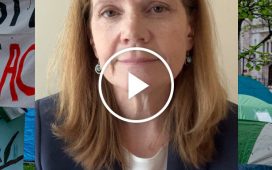The Centers for Disease Control and Prevention sent a striking message on Tuesday: Children should return to classrooms because it’s safe for them to do so.
The agency said the “preponderance of available evidence” indicated that in-person instruction could be carried out safely as long as mask-wearing and social distancing were maintained. Its researchers found “little evidence that schools have contributed meaningfully to increased community transmission” when proper safety precautions were followed.
One important caveat: Local officials also must be willing to impose limits on other settings — like indoor dining, bars or poorly ventilated gyms — in order to keep infection rates low in the community at large.
In one example, researchers looked at 17 elementary and secondary schools in rural Wisconsin where mask-wearing was routine, and the incidence of infection was lower in schools than in the community at large. During 13 weeks in the fall of 2020, there were 191 infections among staff and students — and only seven came from in-school transmission.
The report, published in the Journal of the American Medical Association, adds weight to the consensus among public health experts: With testing and other safety protocols, schools should be the last institutions to close and the first to open. It also jibes with President Biden’s push to reopen most schools within 100 days.
Ron Klain, the White House chief of staff, told Erin Burnett of CNN on Tuesday that there was one missing ingredient that explains why so many public schools are closed in places where private schools are open.
“I’ll give you a word: money,” Klain said. He pointed out that the Wisconsin schools in the C.D.C. study got “a sizable grant from a private foundation to put in the kinds of safety measures they needed.”
Asked about unions that have opposed some reopening plans, he again cited the need for financial resources.
“I don’t think the unions are overruling the studies,” Klain said. “I think what you’re seeing is schools that haven’t made the investments to keep the students safe.”
Teaching the insurrection
Just three weeks ago, supporters of former President Donald Trump breached the Capitol. Since then, educators across the country have tried to help their students parse the tumultuous events.
Some opened the floor for reflections and discussion. Others rerouted their syllabuses toward the news, turning to science fiction, Shakespearean tragedy and the fall of Rome in search of parallels. One second-grade teacher used an analogy her class would understand.
“Let’s say that half of the country thinks dogs are the best, and half of the country thinks cats are the best,” the teacher, Tracy Merlin, said to her class in Broward County, Fla., last week. “But then it just turns out that the dogs won the election. Do you think it’s OK for the cat people to break into all the pet stores when they’re upset?”
“No,” said one student, Ander, 8, his blue headphones clamped over his ears. “Because that’s illegal.”
Sensitive conversations require trust, and remote learning has eroded the privacy of classrooms. Teachers have had to navigate the political passions of their communities in a time of intense division. Parents with strong opinions might be nearby as students learn remotely — perhaps objecting to characterizations of polarizing events.
“I’ve had constant meetings and emails and such with a fairly aggressive contingent of parents that feels very strongly about the way that I am dealing with these issues in my classroom,” said James Mayne, who teaches at a Seventh-day Adventist school in Clark County, Wash., that he said leans conservative.
Around the country
College update
-
All eight Ivy League universities delayed their decision dates by about a week, until April 6, after a surge of applications. The influx comes after the schools made standardized test scores optional as a result of the pandemic.
-
Goshen College in Indiana will now require weekly coronavirus tests for students and staff members.
-
Dennis DePerro, the president of St. Bonaventure University, is on a ventilator after testing positive for Covid-19.
-
An opinion: Shradha Krishnamurthy, a student at Arizona State University, excoriated the school’s reopening plans in an opinion piece for The State Press, the student paper. “A.S.U.’s decision to reopen given the current state of the pandemic shows a flagrant disregard for the health and safety of their own student and employee population, and the communities within which the university resides.”
-
And, yikes: Philadelphia turned to a self-described “group of college kids” to work on the city’s first and largest coronavirus vaccine center. “Chaos ensued,” The Washington Post reported. “One volunteer alleged that the 22-year-old CEO had pocketed vaccine doses. Another described a ‘free-for-all’ where unsupervised 18- and 19-year-olds vaccinated one another and posed for photos.”
K-12 update
-
Researchers at the N.A.A.C.P. have documented racial gaps in access to school meals, after lawyers had to sue to get students essential nutrition during the pandemic.
-
Arizona is vaccinating educators, but school reopening dates are still up in the air.
-
A high school wrestling tournament seeded an outbreak in Louisiana.
-
When all the cafeteria staff members at a private school in Canton, Ohio, had to quarantine, volunteers stepped in to keep students fed.
-
An opinion: “Biden’s message to the teachers should be straightforward and emphatic,” Matt Bai wrote in The Washington Post. “You are vital, irreplaceable public servants. And it’s time you started acting like it.”
-
A good read: Elite public schools in Boston tightened camera rules for virtual school, saying teachers could lower grades if students did not turn their laptop cameras on. “Some students fear the new policy puts a heavier burden on low-income students, who are more likely to live in small, crowded homes with unreliable internet service,” Jenna Russell wrote in The Boston Globe.
-
A helpful resource: On Tuesday, The Atlantic introduced “Homeroom,” a weekly advice column about school during the pandemic. In the first installment, Abby Freireich and Brian Platzer offer advice on coping with student frustration during remote learning.
Tip: How to pay for college
“Financial aid is no longer just about what you earn and what you have,” our colleague Ron Lieber writes in his new book, “The Price You Pay for College.” “It’s also about your children and what they do — and that means that good grades can be worth a whole lot of money.”
Here’s an excerpt from Ron’s book, published in The Times, and a review by Daniel Markovits.




